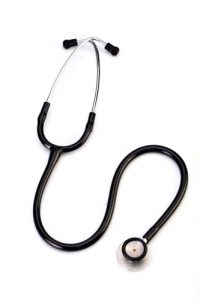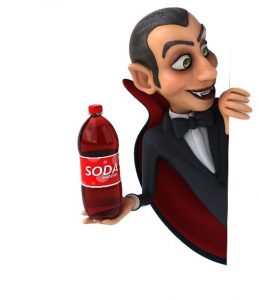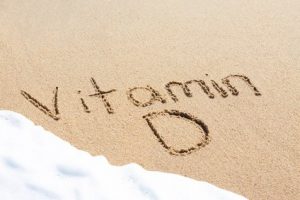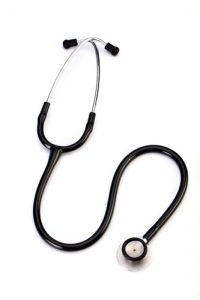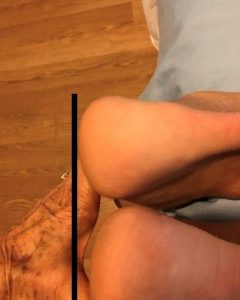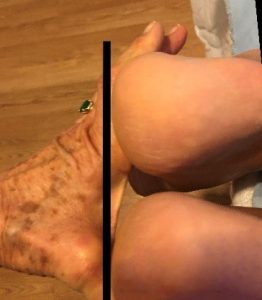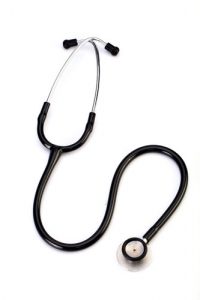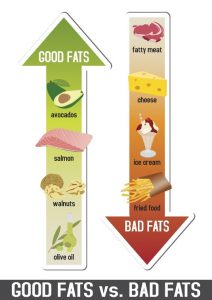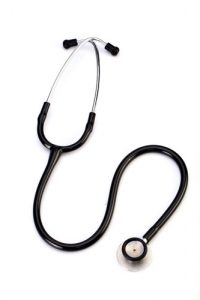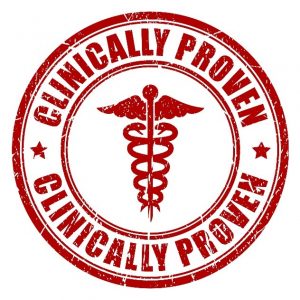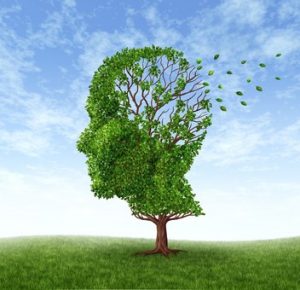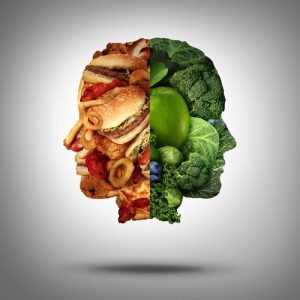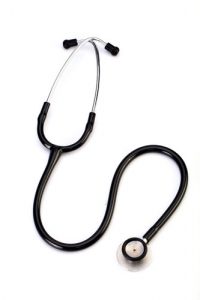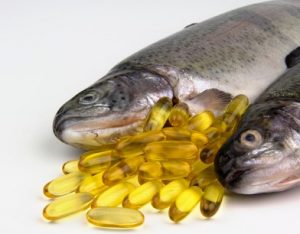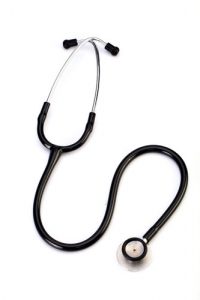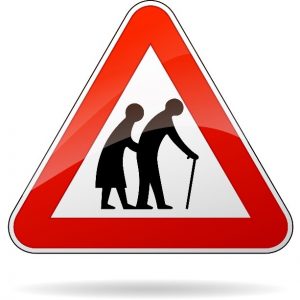Is What’s Good For The Goose, Good For The Gander?
Author: Dr. Stephen Chaney
 Women are bombarded with advice to eat a healthy diet, limit alcohol, and supplement with folic acid if they are even considering becoming pregnant. In fact, since some pregnancies are unplanned, many experts feel this advice should be extended to all women of childbearing age.
Women are bombarded with advice to eat a healthy diet, limit alcohol, and supplement with folic acid if they are even considering becoming pregnant. In fact, since some pregnancies are unplanned, many experts feel this advice should be extended to all women of childbearing age.
This advice is based on tons of clinical studies, including some showing that folic acid supplementation is most effective when taken prior to conception. If folic acid supplementation is begun after the woman discovers she is pregnant, it is much less effective at supporting a healthy pregnancy and improving health outcomes for the newborn baby.
What about men, you might ask? Is their diet and folic acid status prior to conception important? Does preconception diet for males influence a healthy pregnancy? It turns out that there are almost no clinical studies on this important topic. The few clinical studies that have been done have mostly shown that a healthy diet and adequate folic acid improve male fertility.
Rodent studies have shown that male preconception folate status affects both the pregnancy and the health of the offspring, but rodents aren’t humans. This study (N Martin-Calvo et al, Journal of Reproductive BioMedicine Online, doi.org/10.1016/j.rbmo.2019.07.005 ) is the first human clinical study to evaluate the effect of paternal preconception folate status on the length of gestation, which is considered one of the hallmarks of a healthy pregnancy.
How Was The Study Done?
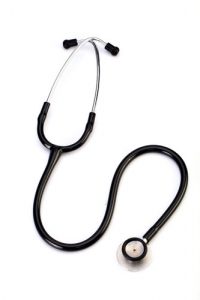 This study was part of the Environmental and Reproductive Health (EARTH) Study that is focused on identifying environmental and dietary factors associated with human fertility. The participants were couples who were seeking treatment for infertility at the Massachusetts General Hospital Fertility Center and opted to enroll in an in vitro fertility program between 2007 and 2017.
This study was part of the Environmental and Reproductive Health (EARTH) Study that is focused on identifying environmental and dietary factors associated with human fertility. The participants were couples who were seeking treatment for infertility at the Massachusetts General Hospital Fertility Center and opted to enroll in an in vitro fertility program between 2007 and 2017.
Upon enrollment, the participants were given complete physical exams and asked to fill out a food frequency questionnaire. The questionnaire asked how often they had consumed 131 foods and beverages during the previous year. Supplement users were asked to identify the brand of multivitamin or supplement they used, along with the dose and frequency of use.
The only two outcomes the study measured were length of gestation and birth weight.
The study coordinators ended up with 108 couples who completed the preconception dietary surveys and had successful pregnancies. These couples had 113 pregnancies resulting in 142 births (85 single babies, 54 twins, and three triplets)
Does Preconception Diet for Males Influence A Healthy Pregnancy?
 Let’s start by putting this study into perspective. It was performed in the United States. That means most processed foods made with grains are fortified with folic acid. In addition, 56% percent of the fathers and 98% of the mothers were already taking a folic acid supplement.
Let’s start by putting this study into perspective. It was performed in the United States. That means most processed foods made with grains are fortified with folic acid. In addition, 56% percent of the fathers and 98% of the mothers were already taking a folic acid supplement.
- For the fathers, folic acid intake ranged from 228 – 925 ug/day (mean = 494 ug/day. That’s almost 100 ug/day above the RDA recommendation for men).
- For the mothers, folic acid intake ranged from 827 – 1329 ug/day (mean = 898 ug/day. That’s almost 300 ug/day above the RDA recommendation for pregnant women).
That meant most of the fathers and virtually all the mothers were getting at least adequate levels of folic acid in their diet at the time of conception.
- This is important because it means this study was not looking at the effect of correcting a folic acid deficiency on pregnancy outcomes. It was looking at the effect of going beyond the RDA recommendation for folic acid on pregnancy outcomes.
With that in mind, let’s look at the study results.
- For fathers, every 200 ug/day increase in folic acid intake at conception was associated with a 2.6-day longer gestational age at delivery of the baby.
- The dose response was linear. That means the difference in gestational age between the lowest intake (228 ug/day) and the highest intake (925 ug/day) of folic acid in this study was approximately 9 days. Given the risks associated with preterm births, that is a significant difference.
- It did not matter whether the folic acid came from food or from supplements. The results were the same.
- The association between the father’s folic acid intake prior to conception and gestational age at delivery was strongest for pregnancies involving twins or triplets, for couples who were having trouble conceiving because of male infertility, and for younger and leaner fathers.
- The mechanism of this effect is uncertain, but folic acid is known to modify DNA, resulting in what is referred to as “epigenetic” changes in gene expression. A recent mouse study showed differential expression of more than 300 genes in the placenta of offspring fathered by folate-deficient males.
- For mothers, folic acid intake at conception had no effect on the length of gestation. That is to be expected because the lowest folic acid intake in the mothers was significantly above the RDA.
- Birth weight was not affected by folic acid intake of either the father or mother.
Does the Folic Acid Status of Males Influence a Healthy Pregnancy ?
 In evaluating the significance of this finding, we need to keep in mind that:
In evaluating the significance of this finding, we need to keep in mind that:
- This is the very first clinical study to look at this very important topic.
- This is a very small, preliminary study.
- This study only looked at two measures of reproductive health.
- The effect on gestational age is small.
Obviously, more and larger clinical studies are needed to confirm and expand on this finding.
However, the true importance of this study is that it ushers in a very different perspective on prenatal counseling.
- Animal studies suggest that folate deficiency of the father can have bad effects on both a healthy pregnancy and the health of the offspring.
- Because of folic acid fortification of refined grains, most prospective fathers in this country have an adequate intake of folic acid. It will, therefore, be very difficult to confirm the associations observed in animal studies with human clinical trials.
- The fact that most men in this country have an adequate intake of folic acid is a good thing…but…
- Low carb diets that eliminate both grains and legumes (beans) are popular. Unless men following these diets are consuming lots of leafy greens, they may end up being deficient in folic acid. That could affect the health of their offspring.
- This study just looked at folic acid intake. It may be just the tip of the iceberg. There are other nutrients (omega-3s) and lifestyle factors (obesity and exercise) that cause epigenetic changes to the DNA and affect pregnancy outcomes.
In the words of the authors: “The implications of these findings are of great importance because, if confirmed, they suggest that preconception exposures of the father, including his diet and lifestyle choices, may have an impact on the health of his offspring, and therefore that preconception care should shift from a woman-centric to a couple-based approach.”
I would put it more simply: “What’s good for the goose, may be good for the gander.”
The Bottom Line
A recent study looked at the effect of folic acid status of fathers prior to conception on a healthy pregnancy, namely the gestational age at delivery of their offspring. The study found:
- For fathers, every 200 ug/day increase in folic acid intake at conception was associated with a 2.6-day longer gestational age at delivery of the baby.
- The dose response was linear. That means the difference in gestational age between the lowest intake (228 ug/day) and the highest intake (925 ug/day) of folic acid in this study was approximately 9 days. Given the risks associated with preterm births, that is a significant difference.
- It did not matter whether the folic acid came from food or from supplements. The results were the same.
- The mechanism of this effect is uncertain, but folic acid is known to modify DNA, resulting in what is referred to as “epigenetic” changes in gene expression. A recent mouse study showed differential expression of more than 300 genes in the placenta of offspring fathered by folate-deficient males.
- This study just looked at folic acid intake. It may be just the tip of the iceberg. There are other nutrients (omega-3s) and lifestyle factors (obesity and exercise) that cause epigenetic changes to the DNA and affect pregnancy outcomes.
In the words of the authors: “The implications of these findings are of great importance because, if confirmed, they suggest that preconception exposures of the father, including his diet and lifestyle choices, may have an impact on the health of his offspring, and therefore that preconception care should shift from a woman-centric to a couple-based approach.”
I would put it more simply: “What’s good for the goose, may be good for the gander.”
For more details on the study and what it means for you, read the article above.
These statements have not been evaluated by the Food and Drug Administration. This information is not intended to diagnose, treat, cure or prevent any disease.


